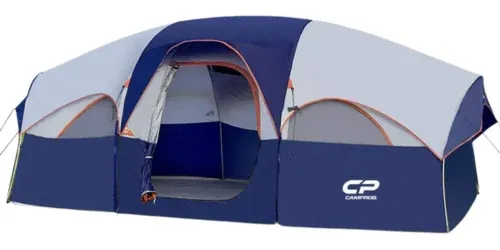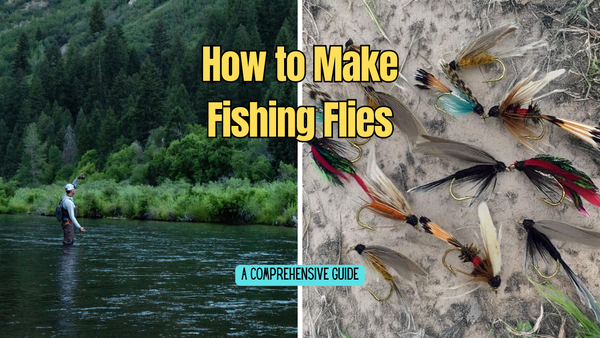Tents are exposed to a variety of elements, from rain and snow to morning dew. Even on the driest days, condensation from your breath can accumulate inside. By airing out your tent, you're allowing all that moisture to evaporate, which is essential for the tent's longevity and your comfort on future trips.
Key Takeaways:
- Airing out a tent after use is crucial for maintaining its longevity and preventing mold and mildew.
- Different types of tents, such as dome tents, cabin tents, canvas tents, three-season tents, and four-season tents, may require specific airing-out techniques.
- Proper storage after airing out ensures the tent remains in good condition for future adventures.


The Importance of Airing Out Your Tent
When you return from a camping trip, the last thing you might want to do is deal with your gear. However, should you air out a tent after use? Absolutely. Airing out your tent is a critical step in maintaining its condition. Moisture trapped inside your tent can lead to mold and mildew growth, which not only smells bad but can also degrade the fabric and coatings of your tent. Whether you have a cozy dome tent for weekend getaways or a robust four-season tent for alpine adventures, each needs to breathe after use.
Airing Out Different Types of Tents
The process of airing out can vary slightly depending on the type of tent you have. Dome tents and cabin tents, popular for their headroom and living space, often have more surface area and might take longer to air out completely. Canvas tents, on the other hand, are made from a heavier fabric that can absorb more moisture and thus may require more time to dry.
Three-season tents are designed for spring, summer, and fall conditions and typically feature more mesh for ventilation, making them easier to air out. Four-season tents are built to withstand harsh winter conditions and often have less ventilation to conserve warmth, so they might need extra attention to ensure they're fully aired out and dry.
Step-by-Step Guide to Airing Out Your Tent
- As soon as possible after your trip, set up your tent in a dry, sunny spot. This allows the UV rays from the sun to help kill any bacteria or mold spores that might have started to grow.
- Open all the doors, windows, and vents to create as much airflow as possible. If your tent has a rainfly, remove it to expose the tent body directly to the air and sun.
By following these steps, you're not only drying out your tent but also giving it a chance to release any odors that may have built up during your trip.

When to Air Out Your Tent
Ideally, you should air out your tent immediately after returning from a trip. If the weather doesn't cooperate, set it up in a well-ventilated area indoors, like a garage or a dry basement. It's important not to procrastinate on this task. The longer you wait, the more likely it is that mold and mildew will take hold, which can be difficult, if not impossible, to remove.
Even if you didn't encounter rain or heavy dew during your trip, it's still a good practice to air out your tent. Human activity, such as sleeping and changing clothes, introduces moisture to the tent's interior, which needs to be aired out.
Cleaning Your Tent Before Storage
Once your tent is fully aired out, it's a good time to give it a quick clean. Brush off any dirt or debris from both the interior and exterior. For more stubborn spots, use a gentle, non-detergent soap and a soft sponge. Avoid using washing machines or dryers, as they can damage the tent fabric and protective coatings.
After cleaning, make sure the tent is completely dry before packing it away. Even a small amount of moisture can lead to mold and mildew growth while the tent is stored.
Proper Tent Storage
Proper storage is just as important as airing out your tent. Store your tent loosely in a cool, dry place. Avoid storing it in its compression sack, as this can stress the fabric and seams. Instead, use a large cotton or mesh bag that allows the material to breathe. This will help ensure that your tent stays fresh and ready for your next outdoor adventure.
The Risks of Not Airing Out Your Tent
Failing to air out your tent can lead to a host of problems. Mold and mildew not only smell bad but can also cause respiratory issues for some people. Additionally, the tent fabric and waterproof coatings can break down, leading to leaks and reduced protection from the elements.
By taking the time to air out your tent, you're investing in its longevity and ensuring that it remains a reliable shelter for years to come.

Summary
Airing out your tent after each use is a non-negotiable step in proper tent care. It prevents the growth of mold and mildew, preserves the fabric and coatings, and ensures that your tent remains a comfortable refuge on your camping trips. Whether you own dome tents, cabin tents, canvas tents, three-season tents, or four-season tents, each requires attention to detail when airing out and storing. By following these guidelines, you can extend the life of your tent and enjoy many more outdoor adventures.

FAQs
How long should I air out my tent after use?
You should air out your tent until it is completely dry. This can take several hours in direct sunlight or longer if the air is humid or if the tent is set up indoors.
Can I air out my tent indoors if the weather is bad?
Yes, if outdoor conditions aren't suitable, you can air out your tent indoors in a well-ventilated area. Just ensure it's completely dry before storing it.
Is it necessary to air out a tent after every trip, even if it didn't rain?
Yes, it's important to air out your tent after every trip to release any condensation or moisture from inside the tent, which can occur even in dry weather conditions.
More about tent care:











